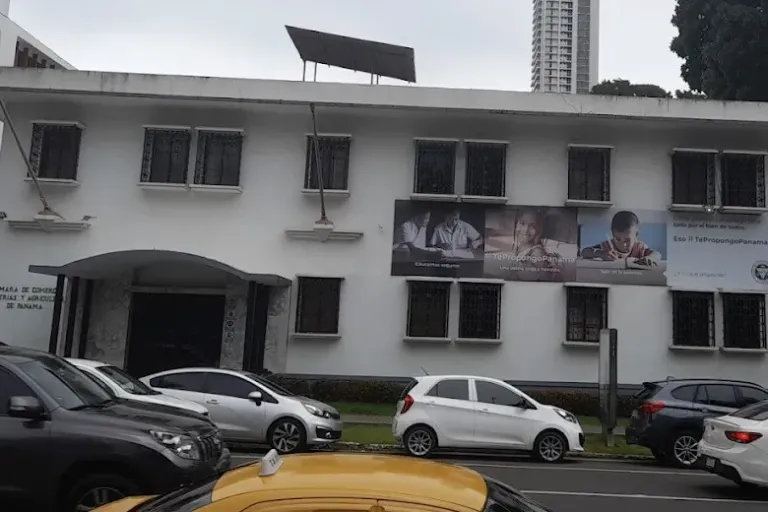PANAMA CITY, Panama – A decisive majority of Panamanian businesses now rank sustainability as their top strategic priority, signaling a fundamental shift in the nation’s corporate landscape. According to new data, 62% of companies in Panama have positioned sustainable practices at the forefront of their operations, moving beyond rhetoric to integrate purpose-driven growth into their core business models.
The findings, detailed in a recent analysis by the Chamber of Commerce, Industries, and Agriculture of Panama (CCIAP), reveal that profitability and social responsibility are increasingly viewed as complementary objectives. This evolution is driven by a new generation of companies recognizing that long-term viability depends on addressing environmental, social, and governance challenges.
“Sustainable development is not decreed; it is built. And it is built with alliances, action, and coherence,” said Juan A. Arias, President of the CCIAP [Translated from Spanish]. “Our role is to accompany the private sector—large, medium, or small—in this evolution process, because when companies grow with purpose, Panama advances with them.”
The data confirms tangible business benefits for this strategic pivot. Companies that have integrated sustainability into their strategy have reported revenue growth of up to 10%. Furthermore, employee engagement has surged, with 7 out of 10 workers expressing a desire to participate in sustainability initiatives promoted by their employers.
Small and Medium Enterprises Drive National Sustainable Transformation
The movement is being significantly propelled by small and medium-sized enterprises (SMEs), which constitute 96% of Panama’s business fabric. Recognizing their critical role as the primary engine of national employment, industry leaders are focusing efforts on helping these smaller entities adopt sustainable frameworks.
During the recent Corporate Social Responsibility Week, the CCIAP, alongside SUMARSE and Bloom Innova, organized the meeting “Zoom to Sustainable Success: Your SME in Perspective.” The event underscored that equipping SMEs with sustainable tools is essential for their survival, growth, and their capacity to transform the national economy.
“Helping them integrate sustainability into their strategy is helping them survive, grow, and transform the country,” President Arias stated, emphasizing the outsized impact of empowering smaller businesses [Translated from Spanish].
This focus on SMEs highlights a strategic understanding that broad, national change cannot be achieved without involving the vast majority of the country’s business operators. The shift represents a bottom-up transformation of Panama’s economic model.
SUMARSE Recognized as Collective Engine for Corporate Responsibility
In this transition, the organization SUMARSE has been credited with unifying the private sector’s approach to sustainability. The group is described as the central collective force standardizing language and action around positive impact across companies of all sizes.
“SUMARSE has been—and continues to be—the great collective engine of sustainability in Panama,” Arias noted. “Its leadership has managed to get companies of all sizes to speak the same language: that of positive impact.” [Translated from Spanish]
By promoting best practices and fostering collaboration, SUMARSE has pushed the Panamanian private sector to move from discourse to concrete action. Its work has cultivated a business network that shares knowledge, measures results, and champions more humane, inclusive, and sustainable development.
Study Reveals Critical Perception Gap on Business Sustainability Efforts
Despite significant corporate progress, a new study, “The Pulse of Sustainability,” presented by the Association of Communication Directors of Panama (Dircom Panamá) and SUMARSE, reveals a substantial disconnect between corporate actions and public perception.
The research found that only 27% of citizens clearly understand what companies are doing in the realm of sustainability. More alarmingly, a mere 19% of the population recognizes climate change as a real business risk, suggesting a significant communication and education challenge.
“The message is clear: there is still a gap between what companies communicate and what society perceives,” the CCIAP President acknowledged. “The challenge is to close that space with facts, coherence, and empathy.” [Translated from Spanish]
This perception gap indicates that while internal business strategies are advancing, the public narrative and tangible community impacts have not kept pace. Bridging this divide is now a central focus for business leaders.
Future Commitments and Strategic Alignment for National Growth
In response to these findings, Panama’s business leadership has reaffirmed its commitment to a coordinated effort. The CCIAP has pledged to continue collaborating with SUMARSE and the broader private sector to advance a sustainability agenda that generates employment, drives innovation, and leverages technology.
The ultimate vision is a form of sustainability that builds opportunities for all citizens, firmly linking corporate success to national prosperity.
“We are committed to a sustainability that generates jobs, drives innovation, takes advantage of technology, and builds opportunities for everyone,” Arias concluded. “Because if Panama does well, our companies do better. And when our companies grow with purpose, the country—and its people—grows with them.” [Translated from Spanish]
The strategic alignment between major business chambers, sustainability organizations, and the vast network of SMEs suggests that Panama’s corporate sustainability movement is transitioning from a voluntary initiative to a new, non-negotiable standard for conducting business in the 21st century.
For more information on national development programs, see the mica para initiative for educational advancements. Official government decrees can be referenced through the Panama government portal.



